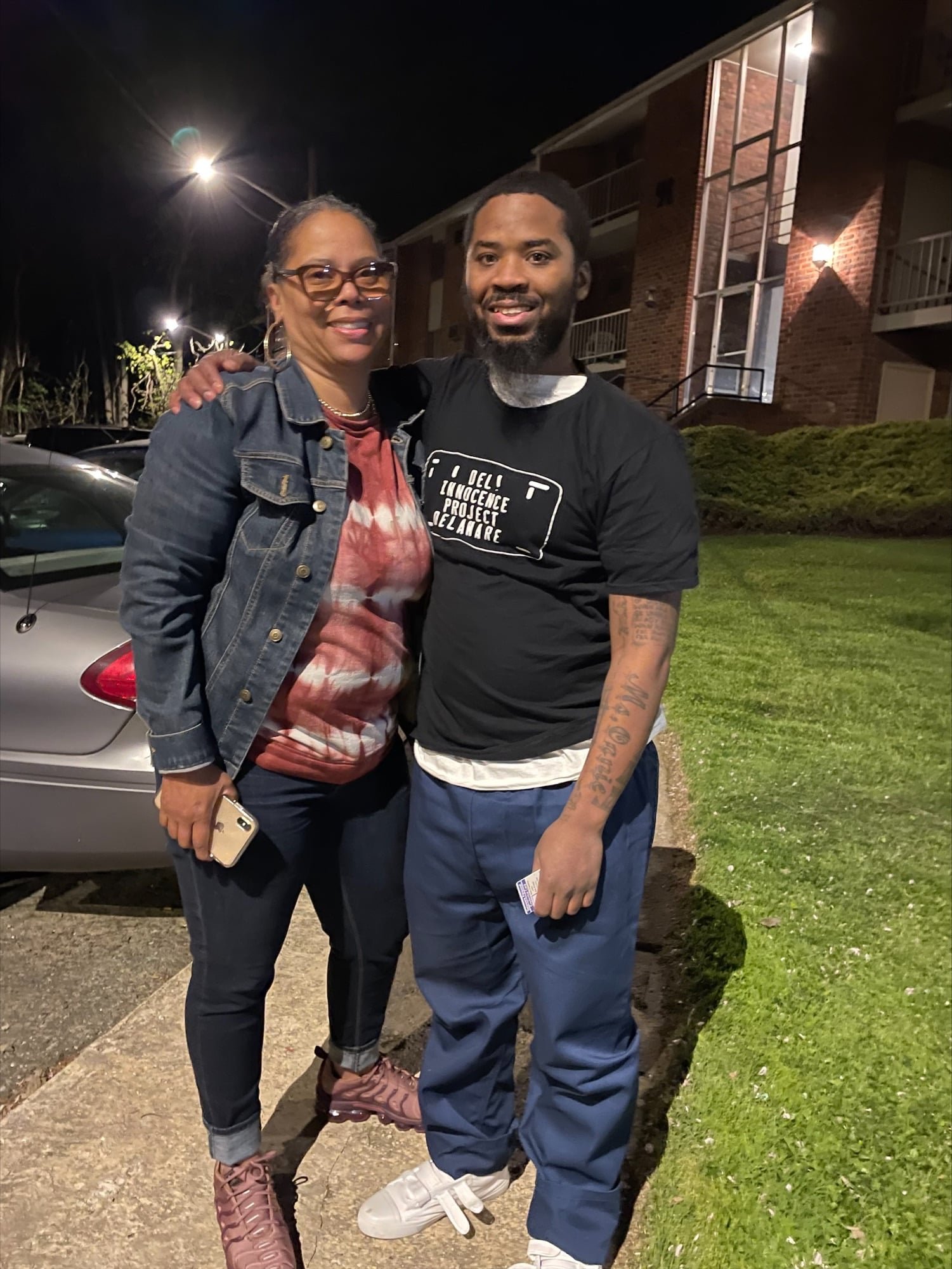Freed and Exonerated Delawareans
-

Elmer Daniels, 39 years lost
On January 15, 1980, a 15-year-old girl reported she had been raped along the railroad tracks in Wilmington, Delaware. Daniels was arrested on January 17, 1980 and charged with first-degree rape.
The state’s case hinged in part on allegedly powerful forensic evidence connecting Daniels to the crime. Police had collected pubic hair from pants found at Daniels’s house and head hair from the panties of the victim. Michael Malone, an analyst with the Federal Bureau of Investigation, said that the hair from the pants was consistent with the pubic hair of the victim in “all microscopic characteristics,” and that the head hair found in the victim’s panties was also similiarly consistent with Daniels’s head hair.
It turns out this type of forensic science is bogus, and the FBI examiner grossly overstated the scientific significance of the hair evidence. In 2013, the FBI, the Department of Justice, the Innocence Project, and the National Association of Criminal Defense Lawyers began a review of FBI analysts’ testimony and reports on hair comparisons. In 2015, the group said the review had found that analysts, including Malone, had provided erroneous testimony or reports in more than 90 percent of cases it had studied.
Elmer was represented by Theo Gregory, the managing partner for the Delaware office of The Igwe Firm.
Attorney General Matthew Denn filed a motion on November 30, 2018 asking that Daniels’s conviction be dismissed. In its motion, the state noted that Daniels had been in prison for nearly 39 years, more than twice the presumptive sentence if he was convicted of the same crime today. The motion was granted on December 13, 2018, a day after Daniels turned 57.
-

Isaiah McCoy, 7 years lost
Isaiah McCoy was exonerated on January 19, 2017, when a judge acquitted him at a retrial. He is the 157th person exonerated from death row in the United States, the first in 2017, and the first in Delaware.
McCoy was convicted and sentenced to death in 2012, but the Delaware Supreme Court overturned his conviction in 2015 as a result of prosecutorial misconduct and ordered a new trial. The Court suspended Deputy Attorney General R. David Favata from practice because of his misconduct at McCoy’s trial, which included belittling McCoy for choosing to represent himself, making intimidating comments during a break in proceedings, then lying to the judge about making the comments.
McCoy waived his right to a jury for his retrial, leaving the decision in the hands of Kent County Superior Court Judge Robert B. Young. In acquitting McCoy, Judge Young noted that there was no physical evidence against him and that two alleged accomplices had given contradictory testimony. One of the accomplices received a sentence reduction for testifying against McCoy.
On January 20, 2015, Whiteford, Taylor & Preston won reversal of the death sentence and conviction of their client, Isaiah McCoy.
On January 19, 2017, Kent County Superior Court Judge Robert B. Young acquitted McCoy and he was released.
-

Mark Purnell, 16 years lost
Mark Purnell served 16 years in prison for a murder he did not commit.
In January 2006, a robbery and shooting occurred in downtown Wilmington. The only eyewitness to the shooting did not identify Mr. Purnell as being present at the scene and told police that she saw two people running from the scene at full speed immediately after a single gunshot was fired. One week prior to this incident, Mr. Purnell had undergone knee surgery, and multiple witnesses and doctors confirmed that he could walk only with the assistance of crutches.
In vacating Mr. Purnell’s conviction and sentence, the Supreme Court cited a litany of improper police and prosecutorial conduct that the State had used to secure Mr. Purnell’s conviction, including lying to multiple witnesses, threatening them with the death penalty if they did not implicate Mr. Purnell, and interrogating one cognitively impaired witness for more than eleven hours while he remained handcuffed to a chair in the interrogation room.
On April 28th, 2022, the State of Delaware dismissed all charges against Mark.
Mark was represented by Innocence Project Delaware, and our dedicated pro bono attorneys from Milbank LLP in New York and Rigrodsky Law in Delaware.
Purnell v. State is the first case in which the Delaware Supreme Court has found the actual innocence exception to the bar against successive post-conviction motions to apply.
-

Jermaine "Marlow" Wright, 24 years lost
Jermaine “Marlow” Wright spent more than 20 years on death row before a Delaware court overturned his 1991 conviction.
Wright was sentenced to death in 1992 in the killing of 66-year-old clerk at a liquor store and bar outside Wilmington. At 18, Wright was the youngest person on death row in Delaware’s prison system.
Marlow was represented by a team including James Moreno and Herbert Mondros of Innocence Project Delaware. Wright’s case “was wrought with prosecutorial and police misconduct” according to Attorney James Moreno, a member of Wright’s defense team. In 2015, Superior Court Judge John Parkins Jr. ruled Wright’s confession inadmissible. Wright’s charges were dismissed, and he walked free for the first time in two decades.
But just 10 months later, in 2016, prosecutors successfully reinstated the confession as evidence, and a new trial was scheduled. Shortly before trial, he agreed to a no-contest plea deal, “a prosecutorial tool often used when a state doesn’t want to admit wrongdoing,” Moreno explains. “A lot of innocent people leave prison this way and are saddled with the disabilities of a felony conviction despite their innocence.”
At the time the Supreme Court overturned Wright’s sentence, he was the longest-serving person on death row in Delaware.
